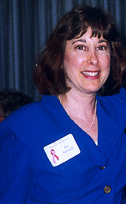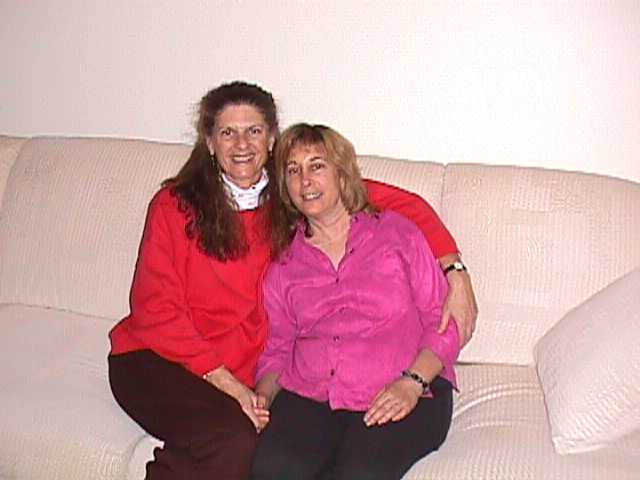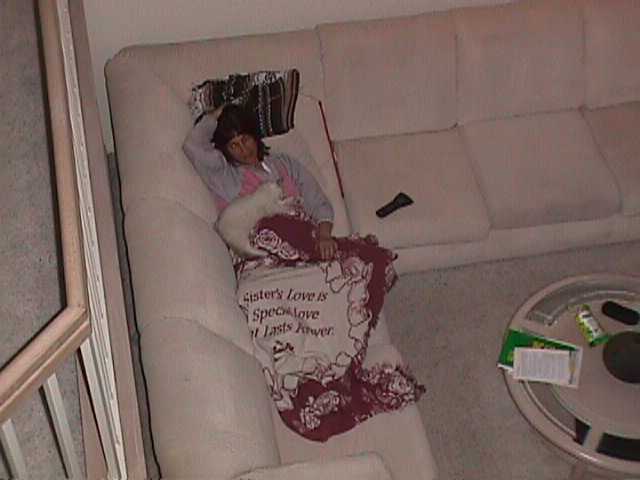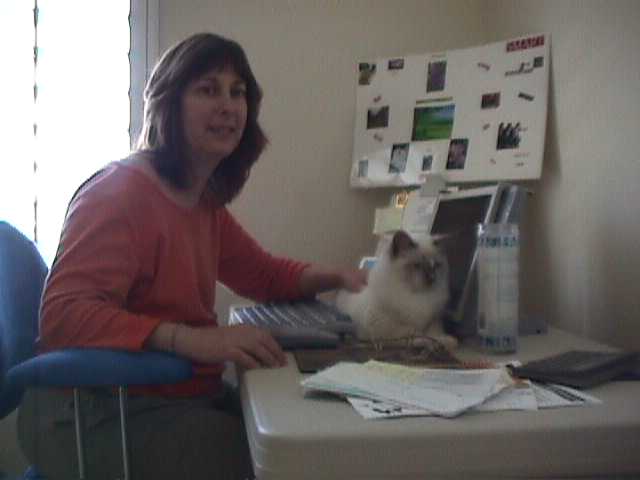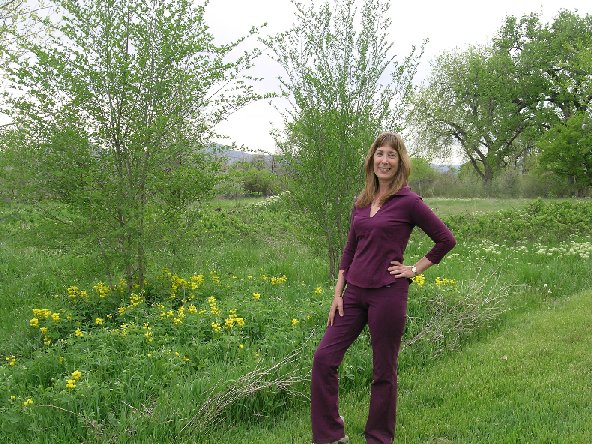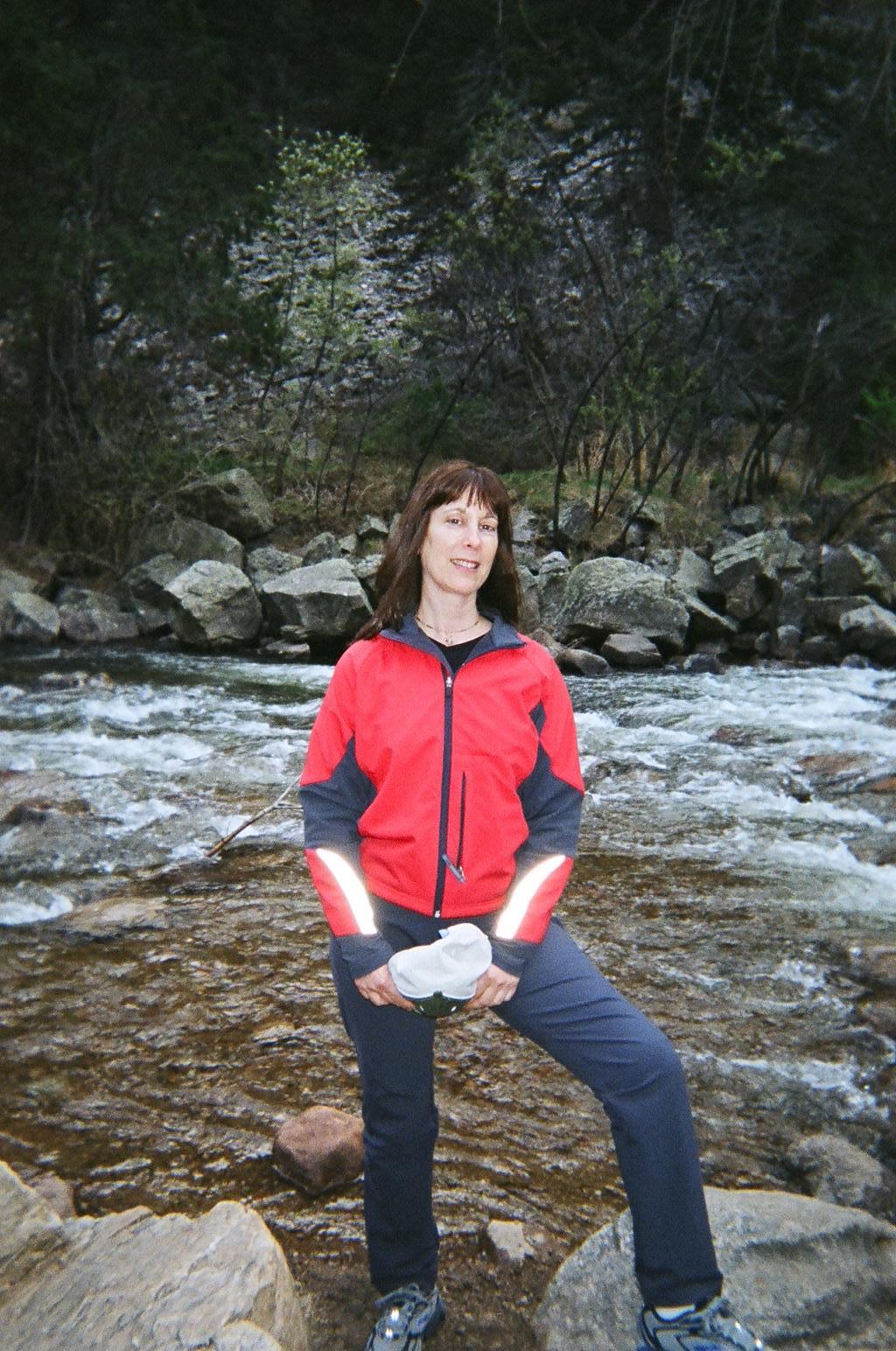From Kate, one week post op: http://cushings.invisionzone.com/index.php?showtopic=19414
Hello, my dear friends,
It is strange to be writing to you from the other side of surgery (well, at least this time somewhat coherently, as my prior post-op posts have been, let's say, lubricated nicely by some very nice pain pills). It seems not too long ago, I was writing my introduction post back in August, then posting questions about testing, months of which are now thankfully over.
Some of you may remember my first posts, and I can't believe that it's only been 5 months ago that I was telling my story and searching for answers. Today, I post both because I learned some things through the surgical process, which I wanted to share with those of you who may be doing this after me. But I also post because this is my denouement...the post-climactic events in my Cushing. (Don't worry, though -- I'm not going to leave!)
PRE-OP SUGGESTIONS:
1. IN-PERSON PRE-SURGICAL CONSULT
Go see the surgeon in advance of surgery. If you can afford to actually go see the surgeon face-to-face ahead of time, I recommend it. This is brain surgery. Yes, it's an additional expense for travel, but if you can, make it happen. You will thank yourself, and you will walk out of that consult with a clear confirmation whether the surgeon will perform your surgery or whether there may be additional tests, labs, reports, referrals, etc. needed prior to that agreement.
Because I'd been fortunate to have this consult, by the time I reached the surgeon on Wednesday (before the Friday surgery) to drop off my films, he basically said, "We already met, and I have nothing to add to our prior conversation, but I'd be glad to answer any questions you may have at this time." The appointment lasted about 2 minutes. Seriously. I think having met the surgeon and him having already agreed to do my surgery meant that no questions were left to be answered -- by either of us -- by the time I went for the operation.
2. INSURANCE: Make sure your insurance is in order. You probably need a referral to the surgeon for "evaluation and treatment"; this referral comes from your PCP to the surgeon. Most surgeon's offices will handle the preauthorization with your insurance company for you. Mine did. Still, for my own peace of mind, I checked with my insurance company more than once to make sure that they had the preauthorization approved.
3. PAPERWORK:
A. LABS - Even if you've had a pre-surgical consult, or even if you've mailed your labs ahead of time, PLEASE do yourself a favor and go to surgery with your paperwork in perfect order. This means even if you have your films and labs already in the hands of the surgeon, ALSO bring a copy of your labs with you!
B. REFERRAL - This next one is non-negotiable: HAVE A REFERRAL FOR SURGERY BEFORE you arrive for surgery. If possible, have a copy of this written referral in your hands. You can arrange this by having your referring endocrinologist copy you on the referral letter/email. Just print it out and make it part of your folder. You cannot self-refer for surgery. You MUST have a referring endocrinologist confirm your diagnosis, the basis for the Dx, and put in writing his recommendation and referral for surgery. If you do not have this, then do not expect to pass go or collect $200. Them's just the facts.
C. PRE-SURGICAL PHYSICAL REPORT - You will have to have a pre-surgical physical. There will be bloodwork, and EKG, possibly a cardiac workup (if necessary), a chest X-ray, and whatever else your surgeon and PCP feel may be necessary to ensure your safe release for surgery. Once all of these tests are completed, it is then necessary to ensure that the report actually makes it to the surgeon's office. I learned this the hard way because I'd coincidentally had a pre-surgical physical for the cancelled IPSS, which had been scheduled as the same day I had surgery instead. Although I'd anticipated that my physical report would therefore wind up at UCLA (where the IPSS was scheduled) instead of Pittsburgh (where surgery was scheduled), and even though this did in fact happen, it only took a couple of phone calls to make sure my surgical clearance report finally made it to the surgeon's office. Two days before surgery, or more (if you have more notice than I did), just sit down for an hour or two and make phone calls to make sure everything is in order and where it needs to be.
D. SELF-CREATED SURGICAL PACKET - Once all of the above is accomplished, the most helpful thing you can do for yourself is to put together a packet to take with you to the surgeon:
- Labs
- Concise list of labs (listing all high numbers, dates, times categorized by test type)
- Referral letter from your endocrinologist with the diagnostic basis for your referral
- Films (Originals AND/OR on CD -- I brought both)
- Pre-Surgical Physical report from Primary Care Doctor
I put my referral letter on top, my own synopsis list of labs under that, then the labs, then the physical report, and I had the clipped together and handed to the surgeon's staff upon my arrival. Maybe some of it was duplicitous, but that way, they had everything they could need at their fingertips.
4. PACKING: Pack well, but lightly. You won't be wearing a lot of clothes, and there are only so many nightgowns you can wear. Take two sets of clothes and two nightgowns, a robe and some slippers with outdoor-type soles, and then slog around in those slippers even after surgery when you are back in clothes and traveling. My sweetie husband bought me some UGG slippers with shearling insides and rubber soles, and I haven't taken them off since I got out of surgery -- even wore them to the doctor yesterday, the lab for draws on Tuesday, and plan to wear them until I am feeling like my feet don't need the comfort of something soft and warm again.
I think Mary printed my packing list in one of the recent newsletters, but I just wanted to confirm YOU DON'T NEED TO TAKE MUCH STUFF. I didn't feel like reading, playing cards, or even really watching TV. So unless you are going somewhere where they do a traditional rather than endoscopic approach (meaning you will be in the hospital more than overnight), skip the toys and such. Every other need you have will be met by the hospital.
5. PRESCRIPTIONS - Get your regular med AND post-surgical meds filled prior to leaving your hometown, if possible. This includes cortef AND injectable solucortef PLUS syringes. Not all pharmacies stock this stuff, so plan ahead a couple of days so they can order it if necessary.
6. BUY A PIK-STICK - This is a thing with a handle on one end and pinchers on the other, which will help you retrieve things off the floor post-op. Trust me, this is a good purchase. $15 at your local pharmacy or Walmart, etc.
7. PREPARE YOUR ENVIRONMENT FOR POST-OP - Get your house clean. Hire someone if you can't do it or don't have family to help. I've never had help, and this was the best thing I did for myself. I came home to a spotless house, which relieved a lot of stress.
Plan where you will sleep upright after surgery. A recliner or a chair with ottoman and pillows both work well. Gather bed pillows to prop under legs. Have a small table next to whereever you will sleep/spend the day. Put lip balm, a coaster for drinks, Puffs Plus with lotion tissues on it, and anything else you think you will need close at hand.
Make arrangements for who will help care for you post-op. You will need intense care for at least a week, and maybe two. Don't be shy to ask people for help, and tell them to bring food rather than flowers. I have enough soup in my freezer for a month, and I don't have to worry about cooking for my husband....nice!
8. SAY GOODBYE TO WORK FOR A WHILE - Don't do what I did and take work to the hotel with you. If you had appendicitis, they would live without you. No one is indespensible. This used to bother me; this week, I am appreciating the revelation. Tell everyone you need limited contact, few visitors if any and NO STRESS after surgery.
SURGICAL SUGGESTIONS
1. LOCATE THE ROUTE TO THE HOSPITAL IN ADVANCE - Find your way to the hospital before the day of surgery. Or, do like I did and arrange to stay in a hotel near the hospital that has a shuttle service. Then, arrange for the shuttle to pick you up half an hour before your appointed registration time. If going to Pittsburgh, I cannot recommend enough staying at Springhill Suites in Northshores, 1 mile from Allegheny Hospital. They took us everywhere we needed to go, including downtown to a pharmacy. For free.
2. MAKE A LIST OF PHONE NUMBERS TO CALL AFTER SURGERY - Take a list of phone numbers for your family members to call when you are out of surgery. You won't feel up to it yourself, but they will be delighted to let your friends and other family know how you made out. I confess my list was developed from my cell phone call log after I was already registered and waiting to go down to anesthesia....which is only to say if my mother didn't call you after my surgery, it does NOT mean you are not my dear friend -- it only means I couldn't quickly access your number from my call log in order to give it to her. I wish I'd written the list out in advance, though, because it relieved me to know people knew the outcome as I knew they were waiting to hear.
3. CHILL OUT, THE SYNTHETIC WAY (IF NECESSARY) - If you are like me -- someone who has not done a lot of surgery, and also hasn't taken a lot of tranquilizers -- I HIGHLY RECOMMEND GETTING TUNED IN by some Xanax, Valium, Ativan or the like immediately after registration. Now, of course I had to arrange for this medication prior to surgery, and I did this through my PCP who thought it was a great idea to have something for anxiety. Then, I did not take it until I had cleared it with the surgical team after admission to the hospital. If you talked to me on the morning of surgery as I waited to go down, you probably had a good laugh. I'm a real hoot on 2 mg of Ativan, as Robin may attest!
The net effect of the tranquilizer was that by the time they wheeled me down to anesthesia, I was not only ready for surgey, I was okay with it, not scared, kind of excited to be moving forward after all of the waiting, making funny small talk with the hospital staff, etc. Maybe you won't need this, but for me, drugs....mmmmmmmm, mmmmmmm, goood!
4. TEE TEE BEFORE CHANGING INTO HOSPITAL GOWN - Use the bathroom BEFORE putting on the surgical gown. I had gone before leaving the hotel, and since I hadn't eaten or drank anything, I thought I wouldn't need to go. Then I found myself in a 2 hour wait down in the anethesia area, and suddenly I had to tinkle. It was, I'm sure, a pretty sight to see me hobbling down the hallway in that surgical gown, in those ugly socks (that are not shaped like feet, by the way), all zonked out on Ativan and waving at people. 
Where I had surgery, they did NOT use a catheter, by the way.
5. WARM BLANKIE WHILE WAITING FOR SURGERY = GOOD STUFF - Tell them you are cold, even if your temperature is just right. That warm blanket was so comforting. Made me feel all snuggly and nice. A pre-surgical hug, if you will.
6. PREPARE INFO FOR SURGICAL TEAM - Tell your anesthesiologist/s EVERYTHING about yourself. Mine was a complicated case because of my sleep apnea, which is (was?) severe. They had prepared to intubate me while awake, if necessary. By the time I had the Versed, I truly, truly would NOT have cared!!! I was so ready for surgery by the time they wheeled me in and gave the Versed, I would have pushed the tube down for them if necessary. But because anesthesia is a risk in and of itself, be SURE to tell them about ANY breathing problems you have, even asthma, some congestion from a lingering cold, apnea, whatever. I wound up in ICU -- briefly -- after surgery, just as a precaution.
7. VERSED: THE POINT OF NO RETURN - Watch your mouth after the Versed. It will give you loose lips!!! Who knows what gems may have come out of my mouth....the one thing I remember was trying to hook up Dr. D with Robin's daughter, Sarah Beth. I do think I also told him he was Dr. D -- for "Dreamy." This was right before he told me he was married, and then the next thing I knew, I was in recovery.
8. SURGERY WAS NOT THAT BAD!!!! Mine lasted 2 1/2 hours. I had it endoscopically by Dr. J, who I am convinced is a world-class surgeon. It went "perfectly," according to my surgeon. Although I had a wicked headache and a nosebleed every time I stood up, it really was not that bad. Kind of like a migraine plus a low-grade flu, and the pain meds hooked me right up. I was doing so well that by 8 a.m. the next day, they had released me from the hospital. I elected to stay until 12, though, to get my last dose of pain meds before adiosing the hospital.
For those who asked, my tumor was 5mm on the right side, had grown down into and around my septum, had been there for years to have grown in that fashion, was not recognized by the radiologist who initially read my MRI, was seen as curiously small on film by the 3 surgeons who did recognize it, and had a 3mm extension/second tumor on the left side of the pit. Dr. J and Dr. D assured me that they felt they got it all and that they had even milked the gland afterwards, though I don't know what that means.
My tumor stained positive for ACTH, and there was plenty for pathology. I have not received the official report, but at 6 a.m. the morning after surgery, Dr. D gave me the truly overwhelming news that I had pathology-proven Cushing's. I wept, pumped his hand up and down, called my husband at the hotel, and according to my mom, my husband met her for breakfast with tears streaming from utter relief and validation at this news.
P.S. Have been told that my gland was preserved and that I may be able to get pregnant. After all this time. Despite Dr. W, my repro endo who for seven years never tested me for Cushings and told me I had PCO.
NOTE FOR THOSE INTERESTED: Remember that Jan. 9th appt. I'd scheduled back in the fall with Dr. W, the one they were really reluctant to schedule? I got a call on Jan. 8th at 8 a.m. from the office manager for the fertility practice informing me that Dr. W retired on Jan. 1. Veddy, veddy interesting. I think my malpractice attorney will find this news to be interesting as well.
9. STAY IN THE HOSPITAL TWO NIGHTS IF YOU WANT TO! I wound up staying back at the hotel the night after surgery, but it would have been nice to have been in that hospital bed, having a nurse bringing me Sprite Zeros and soft, nuggety ice and helping me to the bathroom. However, most medical professionals will agree that it's best to get out of the hospital as soon as you really safely can -- there's a lot of sick folks and germs in that place, after all!
10. P-BURGH = EXCELLENT CHOICE - If you choose to have surgery in Pittsburgh, you will be treated like royalty at every step of the way. Top-notch facility, private room with a stunning view of the city, comfortable bed, constant attention, true compassion from staff, support for your family as they wait for news of your successful procedure.
POST-OP
1. TRAVELLING AFTER SURGERY - Zonk up on pain meds and suck it up and do it. Home is better than hotel, and you won't remember much of the trip if you are on meds and have help from family to do it right. If travelling by car, take pillows and snuggly blankets.
2. PAIN - For me, there wasn't a lot. Then again, I chose to spend the first three days cross-eyed and drooling on Percocets before realizing I didn't really need them. I am still taking one at night to sleep or if I get a headache. But we are talking normal headache now, not the hatchet kind.
3. CONGESTION - You will have some, but keep in mind some of that is surgical swelling and not congestion. I learned this at my PCP yesterday who said she could see the tissue swelling. Mucinex works wonders for getting packed mucus to drain, but then expect some coughing as it tickles the throat. Some folks have used humidifiers, hot bowls of water with salt and a towel over the head, throad lozenges, saline sprays and mists, nose pots to rinse the sinuses. I've done the hot bowl of water twice, and hot showers. It's been one week, and the congestion is pretty much over.
NO: Nose blowing, snuffing up, hocking loogeys, back-swallowing. Also, no bending, reaching down, straining to get up or have a bowel movement (or, as I discovered last night, doing the long cat-stretch while making the cat-stretch noise - OUCH!)
YES: Drinking hot tea, following list above, laying your head back and letting it drain down your throat, sucking it up and realizing it is temporary. LET OTHERS DO FOR YOU. This is not the time to be superwoman.
4. MEDICATIONS - Buy a seven day pill box, then fill it with what you need for the day.
Set up "Crisis Central" with your crisis letter from your endo to take to the ER if necessary (also give this to your PCP ASAP), your solucortef injectable WITH syringes, instruction sheet on how to give the shot, etc. Take your medications on time. Make sure they remain filled and call early to refill.
5. AVOID STRESS - No work. Very few phone calls. Limit internet for at least one week, maybe more. No arguing or debating with anyone about anything. Let others take care of you, even if you've never done this before in your life.
6. SLEEP A LOT. Your body needs it to recover.
7. SNUGGLY BLANKET = BEST FRIEND after surgery. I got a microfleece blanket from Target, and it has been across my lap during the day and draped over me at night. It feels like being enveloped in warm marshmallow cream, or Cool Whip. Very good $29.99 expenditure. Added bonus if you have a sweet lap dog to curl up with you.
8. LISTEN TO YOUR BODY - Mine, at least, has been telling me things: hunger, pain, stress, anxiety, fatigue, weakness, energy, etc. Respond accordingly: take pain meds for pain, eat healthfully and in small amounts when hungry (or else nausea will ensue), take meds on time, don't be afraid to take Xanax or the ilk when stress comes on. I am managing some of these meds with my PCP, who thinks keeping things on a very even keel is a good idea. Since this is new to me, Ms. Intensity, I'm having to ease through this medicinally. Deep breathing exercises work, too.
9. SHOWERING - helps break up congestion and is a good way to perk up if you are feeling low. Just, be careful showering if you are weak. I take my cortef, then shower 45 minutes later when I have some energy. Then settle back down and be quiet. Your body needs stillness and quiet to heal.
10. DON'T PUSH IT. For me, post-op has been pretty much a breeze. No intense pain, only moderate nausea, pretty good adjustment to cortef. I do note I am emotional and somewhat unable to process simple stressors. For instance, even going over to the in-laws for a simple meal was too much last night, one week post-op. So I am doing things like letting the answering machine answer for me, etc. Build a cocoon, then live in it for a while. After years of Cushing's, YOU DESERVE IT (ME, TOO!)
http://cushings.invisionzone.com/index.php?showtopic=19291&st=80
Kate's Top Ten List of Pituitary Surgery Observations (In No Particular Order)
- Presurgical jokes referencing your brain tumor as the cause for your apparent failing memory should be used judiciously; I only got two laughs out of at least a dozen tries.
- One-size-fits-all hospital gowns actually come in two ranges: Regular Folks...and Great Big Ma'ama Jamma!!!! (Even that one swallowed me, and I'm a big 'un!)
- Cost of red plastic hospital bracelet on which the nurse clearly wrote, "Allergic to latex, bandaids and adhesives": $2.50. Cost of roll of adhesive tape subsequently used in mass quantities on inner elbow by same nurse after serum draw: $4.00. Bic pen used by mother of patient, after pulling off tape and noting angry rash, to write on patient's inner arm funny frowny-faces and long arrows pointing to residual rashes: Priceless.
- "Your surgery will be mid-morning and should last about two hours." Translation: "Register promptly at 7:15 a.m. and then plan to wait twelve hours before seeing your family again."
- When the lady in recovery keeps calling your name and telling you she needs you to wake up, this is NOT the same thing as when you were a teenager and your mom threatened to get a glass of water while you turned over to go back to sleep. They really mean that s*&% when they say they want you to wake up!!

- "Hey, what'reyou in here for?" = not a great opener when striking up a conversation with guy moaning next to you in recovery.
- Two words upon standing, post op: Nose bleed!
- Time between requests for beverages: 30 minutes. Time between trips to the bathroom to tinkle: 60 minutes. Time between doses of pain meds: 240 minutes. I know, because I counted!
 (like, for the past 24 hours!)
(like, for the past 24 hours!) - Never again will you so carefully examine your boogers and snot for evidence of the dreaded clear fluids (indicative of CSF leak). "Hey, Mom, does this look pink or red to you?"
- Transnasal transsphenoidal endoscopic pituitary microadenectomy: as close to drive-through brain surgery as you can get!



